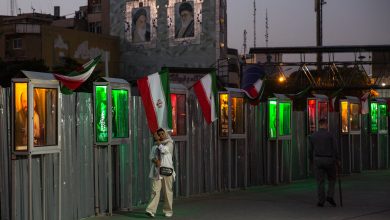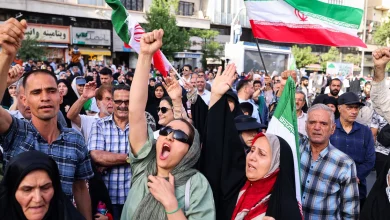Following 27 years of imprisonment, Qassam leader and author Ammar Al-Zabin released
On Thursday, Ammar Al-Zabin, the leader of the Qassam Brigades and an esteemed writer from Nablus, was released from incarceration as part of the seventh wave of detainee releases.

On Thursday, Ammar Al-Zabin, a leader of the Qassam Brigades and a writer from Nablus, was released as part of the seventh wave of the “Flood of Freedom” agreement, determined and executed by the resistance.
Qassam leader Ammar Abdul Rahman Al-Zabin has been released after 27 years in Israeli custody. His release marks the fulfillment of a longstanding pledge by the resistance movement to liberate those held in detention, breaking what they describe as the chains and walls imposed by their captors.
26 Life Sentences Imposed
Al-Zabin was apprehended on January 11, 1998, and subsequently received a sentence of 26 life terms in addition to 25 extra years. This sentencing pertains to his involvement in orchestrating resistance attacks at “Mahane Yehuda” and “Ben Yehuda,” which were executed by the Qassam Brigades in occupied Jerusalem in 1997.
Originally from Nablus, where he was born in 1975, he is a family man with a spouse and four children: Bashayer Al-Nasr, Bisan, as well as two named with symbolic significance, Muhannad and Salah Al-Din.
In 2004, Ammar’s mother tragically lost her life while participating in a hunger strike to show solidarity with Palestinian prisoners held in Israeli jails.
Ammar Al-Zabin stands out as a distinguished figure among incarcerated authors, garnering recognition for his extensive body of work, including acclaimed novels and writings. His novel “When the Orange Blossoms” notably earned the Arab Culture Award, marking a significant achievement in his literary career. Among his other notable works are “Behind the Lines” and “The Group,” alongside a rich collection of short stories, literary critiques, and political essays.
The author is renowned for his distinctive style in portraying narratives and stories that highlight the heroism of the Palestinian people. His driving force in writing is the desire to immortalize the legacy of bravery and dignity displayed by the young fighters.
While in captivity, Al-Zabin has contributed a number of writings and novels, including “The Road to Yaffa Street.” This novel delves into a historical period of resistance within the occupied West Bank, depicting the actions of a Qassam cell.
The narrative further explores the incident involving a settler who reportedly insulted the Prophet Muhammad (peace be upon him) in Al-Khalil. In response to this provocation, the group undertook two significant operations in the “Mahana Yehuda” neighborhood of occupied Jerusalem.







